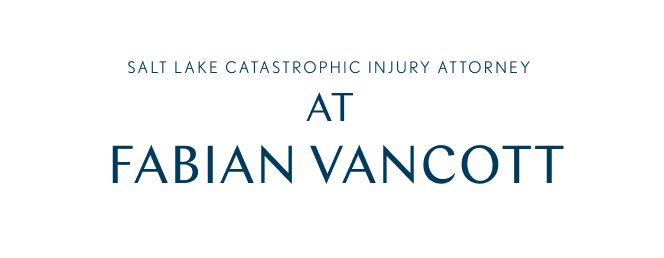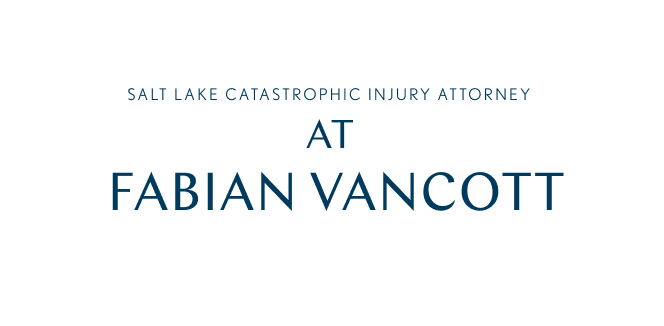Helf v. Chevron, 2015 UT 81 (September 4, 2015) raises the interesting point that the examining attorney must object to a deponent’s non-responsive answers, or to answers lacking foundation. Normally we assume that it’s the opponent– the one not asking the questions– who has to object. But the Utah Supreme Court makes it clear that examining counsel must also object in order to preserve the record.
Here’s the context: Mr. Helf sued Chevron for work-related injuries. During the deposition of a union safety inspector taken by counsel for Chevron, the inspector gave an answer to a question that implicated Chevron. But that answer lacked foundation (lacking personal knowledge) and was also non-responsive to the question. Chevron’s attorney did not object to the answer, nor did he move to strike the answer. In opposition to Chevron’s motion for summary, this testimony was raised by Mr. Helf as evidence of Chevron’s culpability. Chevron, on the motion for summary judgment, moved to strike the testimony as hearsay. The trial judge (the late Tony Quinn) denied that objection, but determined sua sponte that the answer was non-responsive and lacking foundation. And Judge Quinn determined that the “obviation” clause of Rule 32(c) did not apply to the examining attorney, who had no obligation to object to the answer.
As we all know, generally objections to evidence need not be be made in depositions, they are preserved for trial. However, there is an exception for things that are “obviable.” Rule 32(c) provides:
(c)(3)(A) Objections to the competency of a witness or to the competency, relevancy, or materiality of testimony are not waived by failure to make them before or during the taking of the deposition, unless the ground of the objection is one which might have been obviated or removed if presented at that time.
(c)(3)(B) Errors and irregularities occurring at the oral examination in the manner of taking the deposition, in the form of the questions or answers, in the oath or affirmation, or in the conduct of parties, and errors of any kind which might be obviated, removed, or cured if promptly presented are waived unless seasonable objection thereto is made at the taking of the deposition.
Examples of this are foundation objections; for example, an expert being asked an opinion without a proper foundation for it under Rule 702 first being established. If the answer comes in without objection, then the objection to the lack of foundation is waived and cannot be raised later– in motion for summary judgment or at trial. The idea is that if something is objectionable, but could be fixed in the deposition by further questioning, an objection must be made. The opponent does not get to lie in the grass, so to speak, keep quiet and pounce later on.
It’s can be tricky in practice to determine what is “obviable” and what isn’t. We generally are told that objections to form and foundation are “obviable,” and so must be made at the deposition or be waived. But things that cannot be “fixed,” by the examiner— such as hearsay, relevance, and some “competency” objections are preserved. The opponent can keep quiet and still make those objections at trial when the deposition is read.
In Helf, the Supreme Court (with Judge Toomey sitting in) held that Judge Quinn was in error in his ruling that an examining attorney has no need to object to a deponent’s answer:
“¶38 The district court‘s ruling that the waiver rule did not apply was in error. Nothing in rule 32(c)(3)(A) or (B) indicates that the party posing a deposition question has no obligation to object to the deponent‘s answer in order to avoid waiver. Both rules speak in general terms and require waiver of certain types of objections if neither party asserts them during the deposition.”
Objecting to an answer probably wouldn’t occur to many attorneys, but it should. Here’s an example- you’re asking an opponent’s expert about his opinions on the defendant-doctor’s care:
Q (defense counsel): Is it your opinion that my client, Dr. Knife, violated the standard of care in treating the plaintiff?
A (plaintiff’s expert): Yes, I think he violated the standard of care, as did the hospital nurses. They all did, without exception.
There was no foundation laid that the expert is competent to give an opinion on the nursing standard of care. (See, DeAdder v IHC, 2013 UT App 173- physician not necessarily qualified to opine on nursing standards.) Let’s assume that he might be qualified, if a proper foundation would have been laid. The examining defense counsel must object to the experts answer– it’s both non-responsive and without foundation. And so that foundational error was “obviable,” as in theory the foundation could have been established with more questioning in the deposition. Under a strict interpretation of the rules, then, that opinion on the nursing standards is admissible (as for, example, in opposition to a motion for summary judgment by the defense.)
You can see how confusing this can be in a fast-moving back- ‘n-forth of a deposition, trying to determine what is “obviable” and what isn’t. So, when in doubt– OBJECT. Even if you’re the one asking the questions.
For more on this, see, Jeff DeBeer, Handling the Non-Responsive Deponent.
As we all know, generally objections to evidence need not be be made in depositions, they are preserved for trial. However, there is an exception for things that are “obviable.” Rule 32(c) provides:
(c)(3)(A) Objections to the competency of a witness or to the competency, relevancy, or materiality of testimony are not waived by failure to make them before or during the taking of the deposition, unless the ground of the objection is one which might have been obviated or removed if presented at that time.
(c)(3)(B) Errors and irregularities occurring at the oral examination in the manner of taking the deposition, in the form of the questions or answers, in the oath or affirmation, or in the conduct of parties, and errors of any kind which might be obviated, removed, or cured if promptly presented are waived unless seasonable objection thereto is made at the taking of the deposition.
Examples of this are foundation objections; for example, an expert being asked an opinion without a proper foundation for it under Rule 702 first being established. If the answer comes in without objection, then the objection to the lack of foundation is waived and cannot be raised later– in motion for summary judgment or at trial. The idea is that if something is objectionable, but could be fixed in the deposition by further questioning, an objection must be made. The opponent does not get to lie in the grass, so to speak, keep quiet and pounce later on.
It’s can be tricky in practice to determine what is “obviable” and what isn’t. We generally are told that objections to form and foundation are “obviable,” and so must be made at the deposition or be waived. But things that cannot be “fixed,” by the examiner— such as hearsay, relevance, and some “competency” objections are preserved. The opponent can keep quiet and still make those objections at trial when the deposition is read.
In Helf, the Supreme Court (with Judge Toomey sitting in) held that Judge Quinn was in error in his ruling that an examining attorney has no need to object to a deponent’s answer:
“¶38 The district court‘s ruling that the waiver rule did not apply was in error. Nothing in rule 32(c)(3)(A) or (B) indicates that the party posing a deposition question has no obligation to object to the deponent‘s answer in order to avoid waiver. Both rules speak in general terms and require waiver of certain types of objections if neither party asserts them during the deposition.”
Objecting to an answer probably wouldn’t occur to many attorneys, but it should. Here’s an example- you’re asking an opponent’s expert about his opinions on the defendant-doctor’s care:
Q (defense counsel): Is it your opinion that my client, Dr. Knife, violated the standard of care in treating the plaintiff?
A (plaintiff’s expert): Yes, I think he violated the standard of care, as did the hospital nurses. They all did, without exception.
There was no foundation laid that the expert is competent to give an opinion on the nursing standard of care. (See, DeAdder v IHC, 2013 UT App 173- physician not necessarily qualified to opine on nursing standards.) Let’s assume that he might be qualified, if a proper foundation would have been laid. The examining defense counsel must object to the experts answer– it’s both non-responsive and without foundation. And so that foundational error was “obviable,” as in theory the foundation could have been established with more questioning in the deposition. Under a strict interpretation of the rules, then, that opinion on the nursing standards is admissible (as for, example, in opposition to a motion for summary judgment by the defense.)
You can see how confusing this can be in a fast-moving back- ‘n-forth of a deposition, trying to determine what is “obviable” and what isn’t. So, when in doubt– OBJECT. Even if you’re the one asking the questions.
For more on this, see, Jeff DeBeer, Handling the Non-Responsive Deponent.


